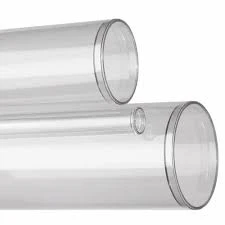Дек . 11, 2024 09:24 Back to list
Benefits of Using HDPE Irrigation Pipes in Modern Agriculture Systems
The Advantages of HDPE Irrigation Pipes A Sustainable Solution for Modern Agriculture
Irrigation is a cornerstone of agricultural productivity around the globe. As the world grapples with climate change, water scarcity, and the need for more sustainable agricultural practices, the choice of irrigation materials has never been more critical. High-Density Polyethylene (HDPE) irrigation pipes have emerged as a prominent solution, providing both durability and efficiency in water management. This article explores the various advantages of HDPE irrigation pipes and their significance in modern agriculture.
What is HDPE?
High-Density Polyethylene (HDPE) is a thermoplastic polymer made from petroleum. Known for its high strength-to-density ratio, HDPE is widely used in various fields, including packaging, construction, and, importantly, irrigation systems. This material is characterized by its resistance to impact, moisture, and chemicals, making it an ideal choice for irrigation applications.
Durability and Longevity
One of the most significant advantages of HDPE irrigation pipes is their durability. Unlike traditional materials such as PVC or metal, HDPE pipes can withstand harsh environmental conditions, including extreme temperatures and soil pressures. They exhibit remarkable resistance to corrosion and chemical leaching, ensuring a longer lifespan—often exceeding 50 years. This durability reduces the need for frequent replacements and maintenance, leading to cost savings for farmers in the long run.
Flexibility and Ease of Installation
HDPE pipes are highly flexible, which allows them to be installed in various configurations and terrains. This adaptability simplifies the installation process, reducing labor costs and the time required for setup. Unlike rigid piping systems, HDPE can bend to navigate around obstacles or conform to the landscape, minimizing the need for extensive land alteration. Additionally, their lightweight nature facilitates easier transportation and handling, making them a practical choice for agriculture across different regions.
Water Efficiency
hdpe irrigation pipe

Water conservation is critical in today’s agricultural practices. HDPE irrigation systems are designed to reduce water loss through evaporation and runoff, helping farmers manage their water resources more effectively. With precise control over water delivery, these systems can be tailored to meet the specific needs of crops, ensuring they receive the right amount of water at the right time. This targeted approach not only enhances crop yield but also contributes to sustainable water usage, aligning with global efforts to fight water scarcity.
Resistance to Contamination
Contamination of water sources is a growing concern in agriculture. HDPE irrigation pipes are less prone to leaching harmful substances into the water supply compared to traditional pipes. Their smooth inner surface minimizes the risk of algae growth and sediment buildup, ensuring clean water delivery to crops. By maintaining water quality, HDPE pipes help protect not only crop health but also the broader ecosystem.
Environmental Impact
As environmental sustainability gains importance in agricultural practices, HDPE pipes stand out due to their low environmental impact. They are recyclable, which reduces waste and encourages a circular economy. When HDPE pipes reach the end of their life cycle, they can be repurposed into new products rather than ending up in landfills. Additionally, the energy required to produce HDPE is significantly lower than that needed for alternative materials, further minimizing their carbon footprint.
Cost-Effectiveness
While the initial investment in HDPE irrigation systems may be higher than traditional methods, the long-term benefits far outweigh the upfront costs. The reduced maintenance needs, longevity, and efficiency in water usage lead to significant savings over time. Farmers can not only expect better yields but also lower water bills and reduced environmental costs, making HDPE pipes an economically viable option for modern agriculture.
Conclusion
As the challenges of farming evolve due to climate change and resource scarcity, innovative solutions like HDPE irrigation pipes will be crucial in transforming agricultural practices. Their unparalleled durability, flexibility, water efficiency, and environmental sustainability make them a preferred choice for many farmers worldwide. By investing in HDPE irrigation systems, farmers not only secure their productivity but also contribute to a more sustainable agricultural future. In an era where every drop of water counts, embracing HDPE technology is a step toward preserving both our crops and our planet.
-
HDPE Natural Sheet: Durable, Food-Grade & Versatile Plastic Solutions
NewsAug.27,2025
-
Durable Glossy PVC Rigid Sheet | Premium High-Shine Panels
NewsAug.26,2025
-
Durable PP Rigid Sheet: Lightweight, Chemical Resistant Solutions
NewsAug.21,2025
-
PVC Grey Sheet for Extraction: Chemical Resistant & Durable
NewsAug.19,2025
-
Durable PVC Pipe Fittings for Plumbing & Irrigation Needs
NewsAug.18,2025
-
HDPE Steel Belt Reinforced Spiral Corrugated Pipe | High Strength
NewsAug.17,2025

